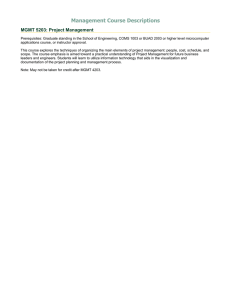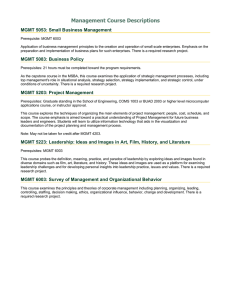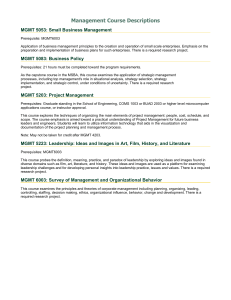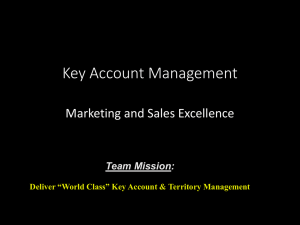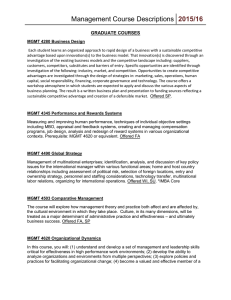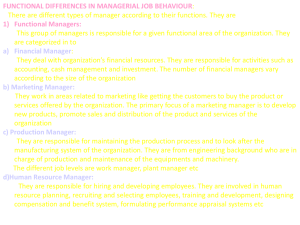Management Course Descriptions MGMT 5023: Pesonnel/Human Resource Management
advertisement
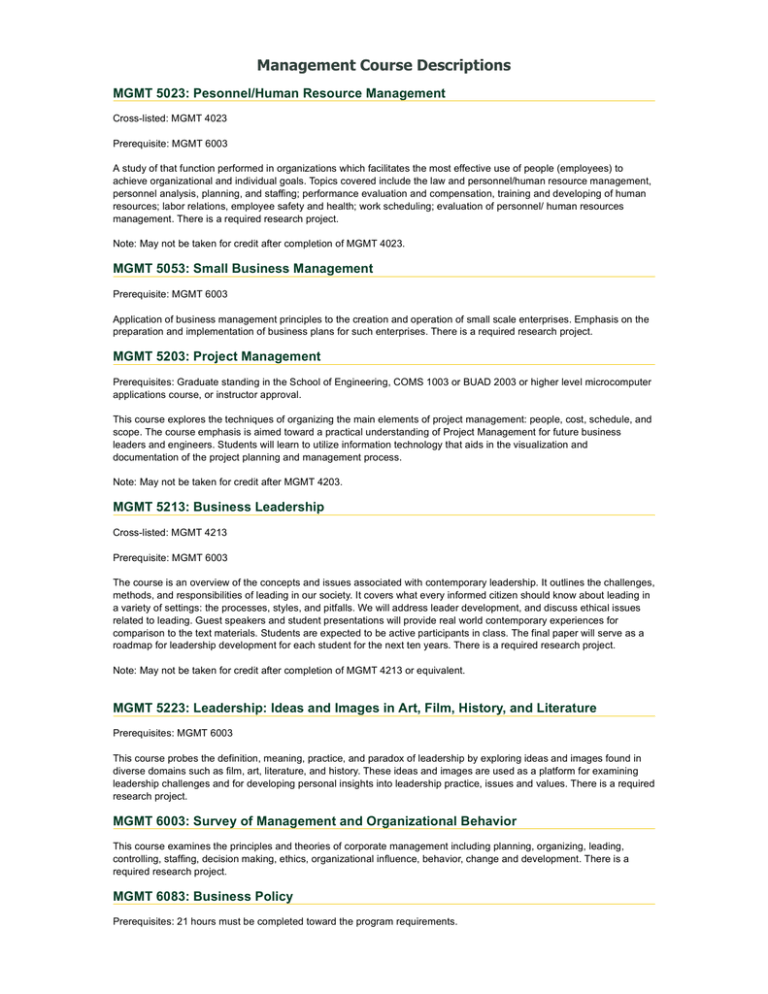
Management Course Descriptions MGMT 5023: Pesonnel/Human Resource Management Cross-listed: MGMT 4023 Prerequisite: MGMT 6003 A study of that function performed in organizations which facilitates the most effective use of people (employees) to achieve organizational and individual goals. Topics covered include the law and personnel/human resource management, personnel analysis, planning, and staffing; performance evaluation and compensation, training and developing of human resources; labor relations, employee safety and health; work scheduling; evaluation of personnel/ human resources management. There is a required research project. Note: May not be taken for credit after completion of MGMT 4023. MGMT 5053: Small Business Management Prerequisite: MGMT 6003 Application of business management principles to the creation and operation of small scale enterprises. Emphasis on the preparation and implementation of business plans for such enterprises. There is a required research project. MGMT 5203: Project Management Prerequisites: Graduate standing in the School of Engineering, COMS 1003 or BUAD 2003 or higher level microcomputer applications course, or instructor approval. This course explores the techniques of organizing the main elements of project management: people, cost, schedule, and scope. The course emphasis is aimed toward a practical understanding of Project Management for future business leaders and engineers. Students will learn to utilize information technology that aids in the visualization and documentation of the project planning and management process. Note: May not be taken for credit after MGMT 4203. MGMT 5213: Business Leadership Cross-listed: MGMT 4213 Prerequisite: MGMT 6003 The course is an overview of the concepts and issues associated with contemporary leadership. It outlines the challenges, methods, and responsibilities of leading in our society. It covers what every informed citizen should know about leading in a variety of settings: the processes, styles, and pitfalls. We will address leader development, and discuss ethical issues related to leading. Guest speakers and student presentations will provide real world contemporary experiences for comparison to the text materials. Students are expected to be active participants in class. The final paper will serve as a roadmap for leadership development for each student for the next ten years. There is a required research project. Note: May not be taken for credit after completion of MGMT 4213 or equivalent. MGMT 5223: Leadership: Ideas and Images in Art, Film, History, and Literature Prerequisites: MGMT 6003 This course probes the definition, meaning, practice, and paradox of leadership by exploring ideas and images found in diverse domains such as film, art, literature, and history. These ideas and images are used as a platform for examining leadership challenges and for developing personal insights into leadership practice, issues and values. There is a required research project. MGMT 6003: Survey of Management and Organizational Behavior This course examines the principles and theories of corporate management including planning, organizing, leading, controlling, staffing, decision making, ethics, organizational influence, behavior, change and development. There is a required research project. MGMT 6083: Business Policy Prerequisites: 21 hours must be completed toward the program requirements. As the capstone course in the MSBA, this course examines the application of strategic management processes, including top management's role in situational analysis, strategy selection, strategy implementation, and strategic control, under conditions of uncertainty. There is a required research project. MGMT 6093: Special Topics in Management Prerequisite: MGMT 6003 Course offers an in-depth exploration of selected management issues affecting business. The primary focus of the course will very from offering to offering; thus the course may be taken more than once. There is a required research project. Note: Students are limited to a maximum of six (6) hours of special topics credit.
